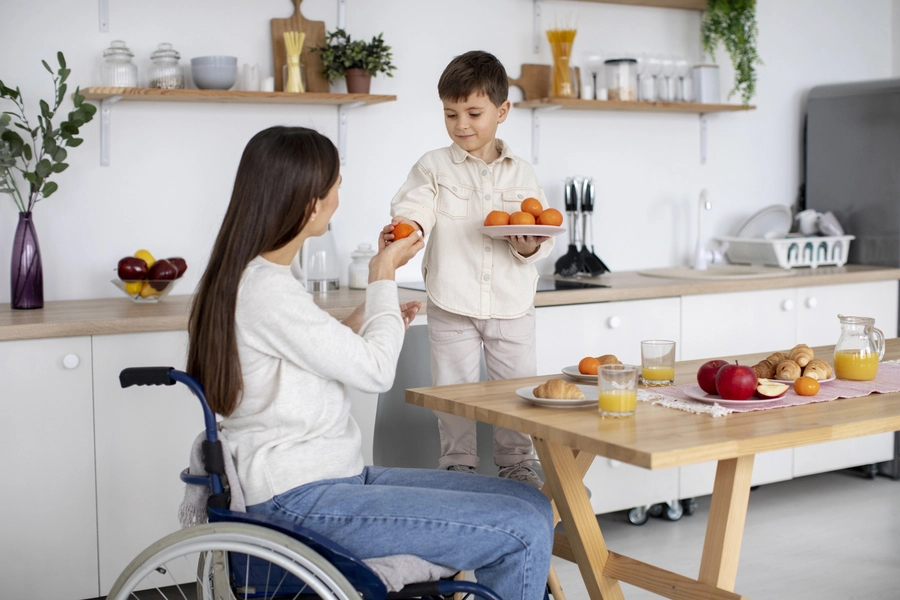In the rhythm of Australian life, where independence is greatly cherished, the act of preparing one’s own meal is a significant daily ritual, symbolising autonomy and self reliance. Yet, for many Australians with disabilities, what seems to be a simple task can present a variety of hurdles. Whether it’s chopping up veggies, standing by the stove, or simply moving around the kitchen, these activities can demand a degree of mobility and dexterity that isn’t always accessible to everyone. Acknowledging these challenges is crucial in moving towards inclusivity and empowerment. The needs of individuals with disabilities are as diverse as the many flavours one can find in a busy market, from those who find conventional kitchen utensils cumbersome, to others who might struggle with planning or executing a meal.
Addressing these issues, there’s a heartening surge in the availability of adaptive kitchen tools and equipment. A range of assistive devices now offer support, enabling people with varying abilities to engage in cooking with greater ease and safety. From utensils with easy-grip handles to cutting aids, these tools are carving out opportunities for individuals to prepare meals independently, bolstering confidence and reducing strain. This wave of innovation isn’t just about gadgets; it’s also reshaping the physical environment of the kitchen. Adjustable work surfaces, accessible storage, and user-friendly appliance designs are steadily becoming more mainstream, each contributing to a kitchen that invites participation from everyone.
Yet, the path to accessible nutrition isn’t only paved with technological advances and ergonomic designs. It’s equally shaped by community support and personal networks. Initiatives like cooking workshops tailored to different abilities are instrumental, providing not just skill-building but also a sense of community. These programs often become empowering spaces where individuals can learn, socialise, and share. For those who face substantial challenges, services that deliver prepared, nutritious meals can be a lifeline, ensuring access to balanced diets that might otherwise be out of reach.
Why is this important? Nutrition is fundamental to health and wellbeing, and a balanced diet is vital for managing health conditions, maintaining energy levels, and promoting overall quality of life. The ability to prepare a meal does more than satiate hunger — it can fulfil a creative urge, contribute to a sense of achievement, and even serve as a communal bonding activity with family and friends.
Australia is a country that prides itself on its spirit of ‘fair go’ and ensuring that everyone can participate in such a basic, yet profound aspect of life is at the heart of this ethos. For individuals living with disabilities, advancements in kitchen accessibility are not just conveniences; they are affirmations of their right to independence and dignity. These innovations and supports stand not only as testaments to Australian inclusivity but also as crucial steps toward enabling all Australians to take control of their nutrition and, by extension, their health and happiness
Interested in more content like this and much more? Check out our blog here and enjoy!

